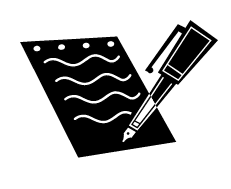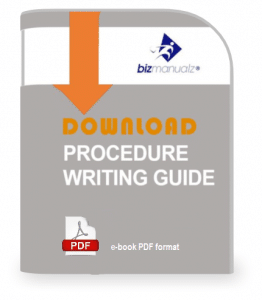5 Ways to Make Your Writing Clearer

Successful writers are more concerned with effective writing than good writing. You might wonder what’s the difference between effective writing and good writing. Effective writing is what truly matters while good writing is based on opinions. Here are five ways to make your writing clearer.
5 Ways to Make Your Writing Clearer 
Everyone has an opinion on what it takes to be a good writer. Opinions on quality are different depending on who’s answering the question. However, it’s difficult to argue with effective writing. The job gets done simply and plainly. Writing clearly and effectively will pay off in spades in the long run.
Have a Purpose in Mind
Why are you writing? To educate? Inform? Impress? Or entertain? Having a purpose in mind will help you focus on your tone, style, and message of your piece. For instance, if you are writing an email or memo, you should focus on getting your message across in a way that’s easy to understand. That’s why you should use your first paragraph for this purpose. Your email or memo should be clear and straightforward.
When you want to get your message across while impressing your readers, you’ll need to use dissertation services. Keep in mind that you should never sacrifice clarity for anything. You can impress your readers by using simple words. Having a purpose in mind will help you get your message across in the simplest way.
Know Your Audience
Knowing your readers (the customer) will help you make informed choices. Most writers act as if they are writing for themselves and get astonished when people don’t read their work. You need to know the needs of the customer you’re writing too and write a piece that meets these needs of your customer so that you reach your the intended audience. How do you know their needs? You’ll have to conduct extensive research and ask them questions.
For instance, if you are writing for your colleagues or boss, the use of jargon and buzzwords can be appealing to them because they’ll help in showing them that you understand your duties at work. However, if you are writing for the general public, you should think twice about incorporating jargon.
If you are preparing a presentation, you must know whether your audience loves humor before you start sharing jokes. On the other hand, if you are writing for people who don’t have time, you must get your message across quickly using the simplest terms. Knowing your audience will help you plan your content and organize your message to suit them.
Use Active Voice
This doesn’t mean that you shouldn’t use passive voice. However, you must use active sentences to avoid confusing the reader. You can go for passive voice when you want to emphasize an action more than the actor or when you don’t know who the actor is. Think of the differences between the passive and active voice in relation to the actors in the sentence. In active voice, the subject performs an act. In passive voice, the subject receives the effects of the action. If you’ve used lots of passive sentences, you can convert them into active sentences by adding verb power. However, it all depends on how the passive sentence was composed. In general, always use active voice.
Simple is the Best
Most of the US essay writers are advocates of simplicity and clarity when it comes to writing. You don’t have to use flowery adjectives for readers to understand you. Award-winning writers use short sentences, paragraphs, and the most precise and descriptive words. As you write, avoid negativity as much as possible. Use affordable instead of inexpensive or vague instead of unclear. In any writing style, simplicity doesn’t mean being boring or dumb. It makes you interesting because the majority of your readers will understand you without having to peruse the dictionary.
Read and Proofread
You should never publish your work without reviewing it. One misspelled word or a series of wrong punctuation can ruin your piece and lead to wastage of time and money. It’s always important for another person to proofread and edit your piece.
You should not proofread and edit your work because:
- You are familiar with your writing, therefore; it will be difficult for you to spot small mistakes because you have the flow and message in mind.
- You’ll do as much as you can to avoid criticizing your work
- After writing a piece, you might be too exhausted to reread it several times
Reviewing and Editing Your Own Work
You should not proofread and edit your work. However, sometimes you may be forced to review and edit your work. In that case, here are a few essential tips.
Give it Time
If time is on your side, you need to check this link as you allow your mind to forget the message and flow of your piece. Review it after one or two days. Doing this will help you spot and correct mistakes that you’d miss.
Choose What to Focus on
Proofreading is easy when you have one thing to focus on. Go through your work several times and focus on one aspect every time. You can start by looking at the sentence structure first, spelling, word choice, and conclude with punctuation.
Spot the Common Errors
You need to spot common mistakes like “your” instead “you’re” or “its” instead “it’s”. Double-check the words that you aren’t sure of. Think of all the synonyms that you can use. If your work has facts, figures, citations, direct quotes, and proper names, always check twice. It’s important to cite sources to show that you’ve conducted extensive research and that you acknowledge the sources.
Avoid Repetition
Are there sentences or phrases that you’ve repeated several times? Repetition is a factor that influences learning something new, but you must be careful how you use it. Using one word in the same paragraph or sentence will reduce the quality of your work drastically. Unless you are using words that have no synonyms, your piece should sound better when you include several different words. Use your dictionary to replace all repeated words. If the meaning of your sentences changes, you may have to rewrite all of them to avoid confusing your readers.
Methods for Clearer Writing
There are many tricks in business writing, but writing is a skill. And like all other skills, you can develop and improve it through practice and consistency. When you follow all the tips that we’ve discussed here, people will be ready to sacrifice their time to read your piece and will appreciate the time your took to ensure clear writing.
Author Bio: Jessica Chapman, a writing editor at assignment help uk, Aussiessay, and college paper.org reviews from Chicago. She is into sport and politics, enjoys travelling.
















Leave a Reply